- Conservative Saudi Arabia is seeking to open its borders to the world, aiming to diversify its economy, which today is based on oil;
- The Saudi prince seeks to transform the country into a futuristic economic zone and a destination for tourists from all over the world;
- With social and economic development, in addition to investment in infrastructure and culture, the country will have cities that will compete with Dubai.
Saudi Arabia has traditionally been a conservative society closed to the world. However, it is one of the most important and influential countries in the Middle East, especially for its large oil reserves.
However, despite the Saudi economy being heavily dependent on oil, the government is committed to diversifying and improving it for the future, making openness to the world an important part of that objective.
Therefore, this opening is a great opportunity for the country to become a leading center in the Middle East and a source of innovative solutions and technological advances, and may even compete with Dubai, located in the United Arab Emirates.
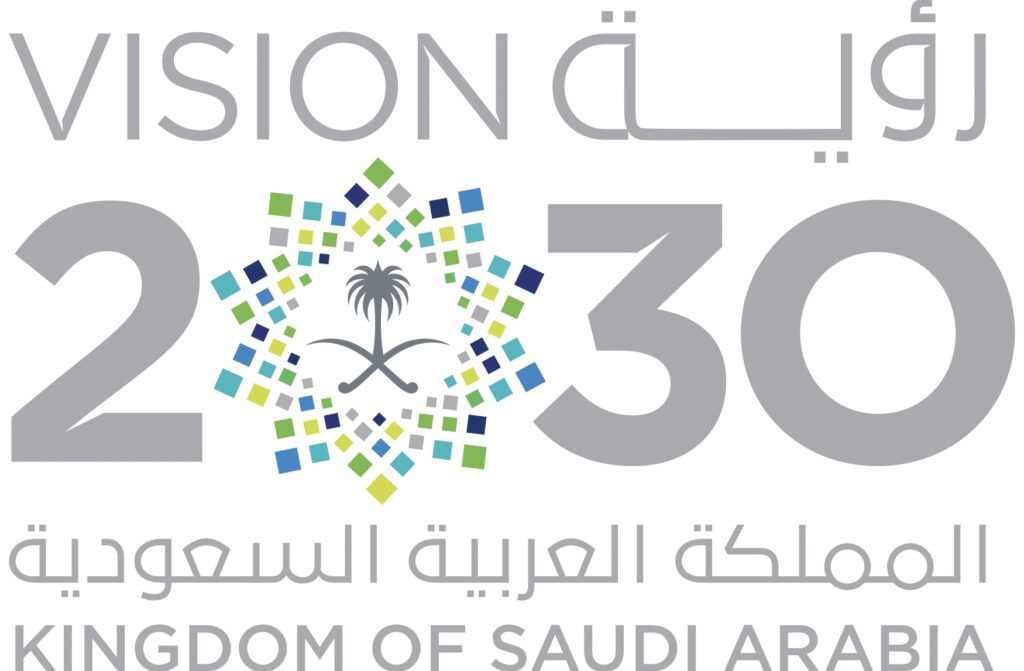
Why is Saudi Arabia closed and why does it want to open up?
Saudi Arabia is considered a country reluctant to globalization and some of the reasons may be:
- Its Absolute Monarchy;
- Saudi Wahhabism;
- The regulation of the internet and the media.
The country is governed by an absolute monarchy, which holds political power and all the country’s essential institutions, including the judiciary, army, media and security services. As a result, Saudi society is heavily controlled and there are strict restrictions on freedom of expression.
Furthermore, Saudi Arabia is known for its conservative interpretation of Islam, Wahhabism. The doctrine is a branch of Islam, created by Muhammad ibn Abd al-Wahhab, who lived in Saudi Arabia in the 18th century. Al-Wahhab formed a political alliance with the Saud family, which allowed the spread of Wahhabism across the Arabian peninsula.
Wahhabism emphasizes the purification of the Islamic faith and enforces strict and comprehensive social laws, including those regulating dress, gender interactions and religious practice.
And although it has a strong following in Saudi Arabia, Wahhabism is also seen as a negative influence by many other Muslims, who believe that its strict and narrow interpretation of Islam does not reflect the diversity and tolerance of Islam as a religion.
Another point that emphasizes Saudi Arabia’s rigidity is its strict regulation of the internet and the media, which limits freedom of information and expression. People who express opinions critical of the Saudi government or society may be arrested or otherwise punished.
On the other hand, some of the factors that strongly contribute to the openness of the country are:
- The Arab Spring;
- The internet and social media;
- Dependence on oil;
- The government of Mohammed Bin Salman.
The Arab Spring, which began in 2010 in Tunisia, has had a significant impact in Riyadh, and although it has been dampened by heavy government repression, the movement, which was motivated by demands for democracy, human rights and social change, has inspired some Saudis to questioning the way the country is governed and demanding political and social changes.
Concurrently, the internet and social media have also given many Saudis the opportunity to observe the outside world and connect with people from other countries. This can contribute to expanding society’s worldview and encourage questioning in the face of society’s rules and restrictions.
Furthermore, the internet has been an important platform for organizing and mobilizing activists and social groups, although it has been heavily limited by the government.
In short, the internet ends up playing a dual role in opening up Saudi Arabia. On the one hand, networks are strictly regulated by the government in order to avoid criticism, but on the other hand, the internet provides access to information and connection to the outside world, fostering questioning and social change.
Another crucial factor is Riyadh’s economic dependence on oil, which is why the country is opening up to the world with the aim of diversifying its economy, reducing its dependence on oil and increasing its global competitiveness.
Finally, Mohammed bin Salman – also known as MBS – who began his role as Crown Prince of Saudi Arabia in 2017, has spearheaded a series of ambitious reforms and initiatives in the country, including changes to economic, social and cultural policies.
However, he is considered one of Saudi Arabia’s most controversial leaders. Since its rise to power, MBS has spearheaded a series of reforms especially for women such as: the right to drive; greater participation in the labor market; starting businesses without authorization from a male guardian; as well as study, work and travel also without needing male permission.
However, the MBS leadership has also been criticized for its crackdown on human rights, including the jailing of activists and journalists – including the 2018 killing of Saudi journalist Jamal Khashoggi – and for its controversial foreign policy.
How is Saudi Arabia opening up to globalization?
Saudi Arabia is opening up to globalization in several ways. Key features of this opening include:
- Economic diversification: The country is seeking to diversify its economy and make it less dependent on oil, which includes the development of new sectors such as technology, tourism and renewable energies.
- Social reforms: Implementation of a series of social reforms, including ending the driving ban for women and opening cinemas and public concerts, with the aim of making Saudi Arabia more attractive to tourists and foreign investors.
- Facilitating Foreign Investment: Measures to make it easier for foreign companies to invest in Saudi Arabia, including streamlining bureaucratic processes and creating special economic zones.
- International cooperation: Riyadh is seeking to increase its cooperation with other countries in areas such as trade, investment and defence, including participation in regional and global free trade agreements.
- Tourism: development of ambitious tourist projects, such as the Red Sea tourist complex, to attract visitors from all over the world, offering tourist visas and carrying out cruises on the coast.
- Technological innovation: Riyadh is investing in technology and innovation, such as the creation of the futuristic city of Neom, to become a global hub of innovation.
- Infrastructure: investment in infrastructure to improve citizens’ quality of life and make the country more attractive to foreign investment.
These initiatives aim to help the monarchy become more integrated into the global economy and attractive to foreign investment, seeking to become a new Dubai, as a global center for commerce, tourism and innovation.
Saudi Arabia as a futuristic economic zone and the Saudi Vision 2030 Project
With the aim of becoming a futuristic economic zone, Saudi Arabia created the Future Investment Initiative, an annual event sponsored by Saudi Arabia that aims to attract international investment.
The event brings together business leaders, politicians and technology experts to discuss business opportunities and economic development in Saudi Arabia. The meetings are also used to present projects and initiatives that help achieve the objectives of the Saudi Vision 2030 Project.
The Saudi Vision 2030 is a long-term strategy announced by the Kingdom of Saudi Arabia in 2016, aimed at diversifying the country’s economy and making it economically diverse and improving the quality of life of Saudi citizens.
The plan includes previously highlighted initiatives in areas such as technological innovation, tourism, infrastructure, clean energy and social development. The objective is to transform Saudi Arabia into a modern economy that is attractive for long-term investment.
In this plan, Mohammed Bin Salman included the creation of smart cities in the project known as NEOM. This is an ambitious Saudi project, started in 2021, which envisions a “new future”.
This “city of the future” will be made up of four regions, each one of them housing architectural projects developed by renowned companies, such as Morphosis, Zaha Hadid, Mecanoo, Aedas and UNStudio, being a futuristic and innovative vision for the region.
NEOM will consist of four distinct regions, known as Sindalah, Trojena, Oxagon, and Line. The team responsible for the project hopes to revolutionize urban life, incorporating smart city technologies and bringing advanced urban planning concepts to life. The aim is to “reimagine” the way people live in a city, offering a futuristic vision of urban life.
Jeddah as a new Dubai
The discovery of oil in Abu Dhabi and Dubai in the early 1960s brought significant wealth and investment to the region, enabling infrastructure and trade development.
Furthermore, the visionary leadership of the UAE rulers, along with their policy of economic diversification, contributed to the country’s rapid growth and success. Dubai has become a major global financial and tourist center due to its strategic location, favorable business policies, construction of iconic skyscrapers and world-renowned events such as Expo 2020.
Currently, Jeddah, one of the largest cities in Saudi Arabia, is making significant efforts to transform itself into a modern and cosmopolitan city, similar to Dubai in the United Arab Emirates.
The city is known as the “gateway to the holy sites of Mecca and Medina” and has a long history as a commercial and business center in the region. However, now Jeddah wants to become a leading city in terms of economic development, infrastructure and quality of life.
As part of Bin Salman’s vision to become a futuristic economic zone, Jeddah is investing in infrastructure, real estate development and attracting international companies.
The city is becoming a commercial and tourist hub on the Arabian Gulf, offering lively urban life and a wide range of entertainment and leisure options for its residents and visitors. In addition to its rich cultural heritage, its beautiful beaches and its modern entertainment centers.
Furthermore, just like the new Saudi Vision projects, Jeddah is working to become a smart city, with advanced information and communication technology solutions.
What are the geopolitical consequences of opening Saudi Arabia to the world?
It is possible that opening up Saudi Arabia to the world could have positive impacts on the stability of the region, help the country to become a center of leadership and influence, in addition to causing significant political-economic and societal changes.
This may include the liberalization of restrictive religious laws based on Wahhabism, due to the increase in tourism in the country, causing the possible weakening of this strand.
It is possible that the monarchy’s control over the internet and the media will also be lessened, as the eyes of the whole world will be on Bin Salman, which may give society the opportunity to express its dissatisfaction with a possible lesser repression.
The increase in international trade with Riyadh and foreign investment, especially in the areas of infrastructure and renewable energy, may influence Saudi foreign policy, including its stance on the conflict in Yemen, promoting regional security.
With the recent rapprochement between Iran and Saudi Arabia, which could threaten US hegemony, it is possible that Riyadh will strengthen as a regional power beyond the oil factor.
Historically, Saudi Arabia’s economy has been heavily dependent on oil revenues, which can fluctuate dramatically due to global oil prices. By diversifying its economy, the country could become more resilient to these fluctuations, providing greater stability and predictability to its finances.
Overall, a stronger Saudi Arabia after diversifying its economy beyond oil could have significant geopolitical consequences, potentially making the country a more influential player in the global economy and international affairs and potentially becoming member of international alliances that would compete with the traditional “Western” world.
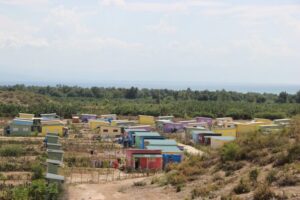

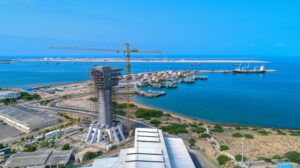
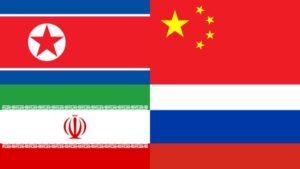
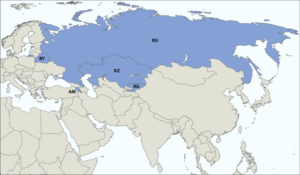
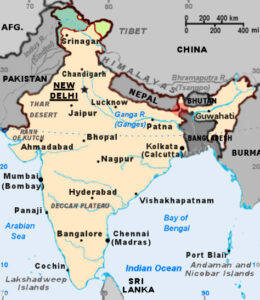



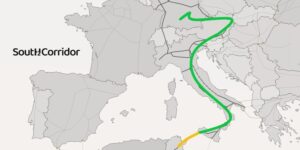



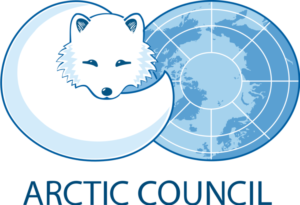

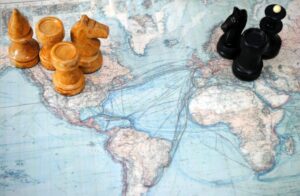

[…] has successfully brokered a historic agreement between Saudi Arabia and Iran to normalize relations, with the potential to transform the Middle East by replacing the […]
[…] The 28th Conference of the Parties (COP 28) in 2023 highlighted the urgency of exploring alternatives and adapting to an evolving scenario. Therefore, Saudi Arabia may seek to emulate the efforts of the United Arab Emirates in creating new sources of revenue beyond oil, as part of its plan to transform the country into a “new Dubai.” […]